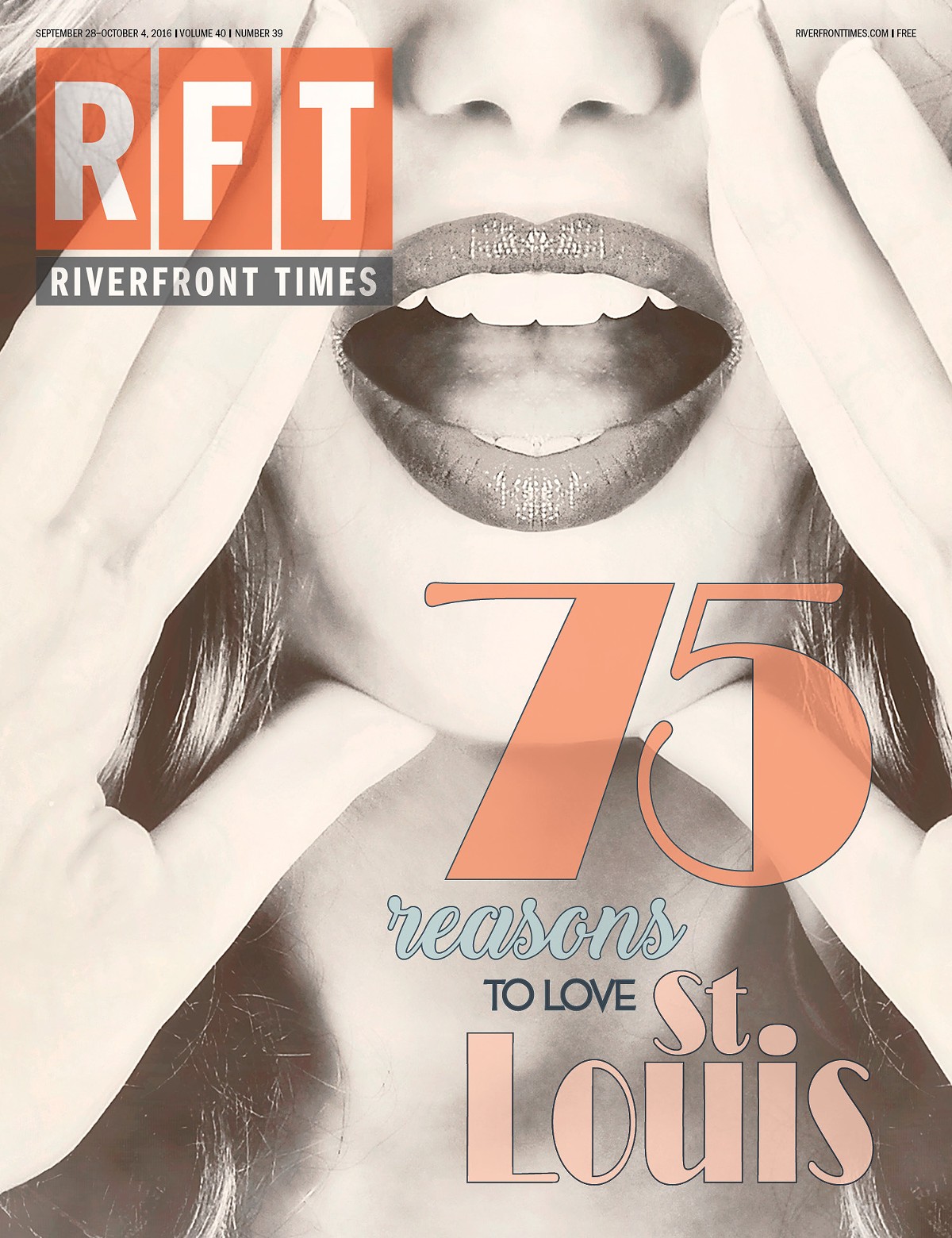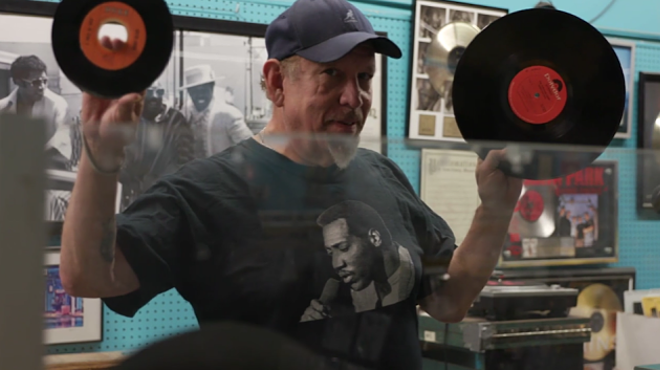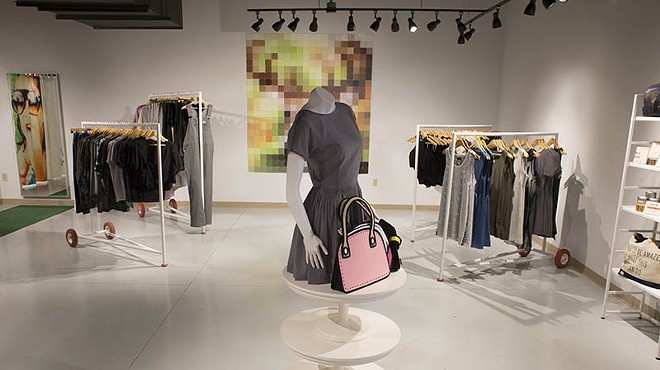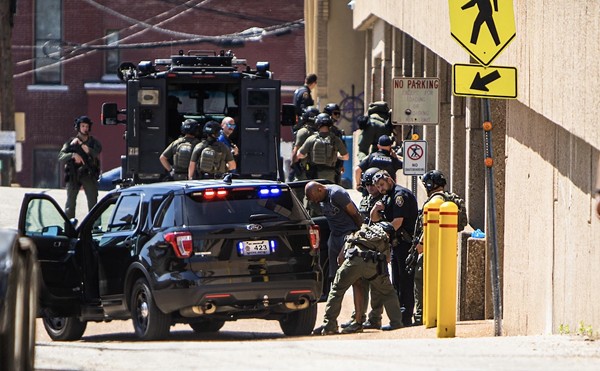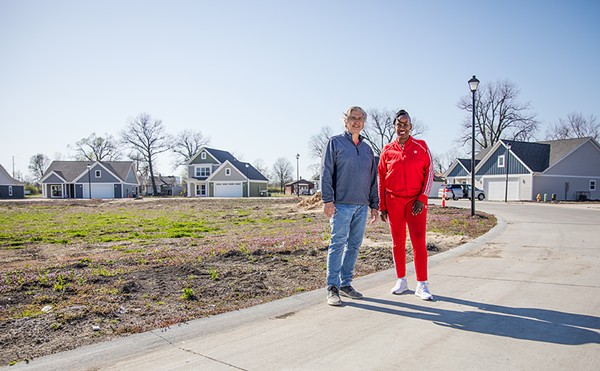
When Charles Dickens first arrived in America he reportedly asked to be taken to see a few prisons; ever the social reformer, he felt he would gain some insight into who we are by seeing how we treated and housed our criminals.
Me, I go to the book store.
More accurately, I go to several. St. Louis is less a city and more a sprawling connection of neighborhoods, each with its own concerns, gossip and squad goals. Our book stores are the limbic system of our Frankenstein body politic, capturing the mood and general emotional health of a particular neighborhood. You'll overhear people talking about their fears (the coming election is a big one), the day-to-day stuff like dead car batteries, the Cardinals and the big issue of our time — what are we going to read next?
Kelly von Plonski (currently reading Emma Cline's The Girls and Robert O'Brien's Mrs. Frisby and the Rats of NIMH) is the owner of Subterranean Books (6275 Delmar Boulevard, University City; 314-862-6100). She suspects this is the case because of the communal nature of how people buy books.
"We hand-sell them," she says. "It's a personal, one-to-one relationship between us and the customer."
Subterranean has been in business in the same location since 2000, and von Plonski says seeing customers who were there at the beginning come in now with children is one of the most rewarding things about the job. She also knows who gets the credit for those life-long relationships.
"It's the staff. I'm not here all the time, so I know it's up to them."
Subterranean has two full-time employees and two part-timers. Von Plonski believes a good book seller is "part introvert and part extrovert. They have to be a voracious reader, and they have to be curious about what other people are reading."
That curiosity is important. In 2016 people have a plethora of outlets for book talk, book news and book buying, most of them online. But none of them compares to standing in a book store and talking with strangers about what they have in stock. When a customer asks where to find D.H. Lawrence and it opens a store-wide discussion about his best story, you know you're in a great book shop; when everybody nominates a different story and then all involved — including the employee — file off to browse Lawrence's back catalog, you know you've found your people. It's an experience impossible to replicate via text, chat or online review.
That's why social media plays such a small role in von Plonski's professional life. "It's not any more important now than it's ever been," she agrees. "I run Twitter and Facebook, and Gena (Brady, a full-timer) manages our Instagram account, which is mostly for pictures of Teddy." Teddy is Gena's dachshund, and he's in-store several times a week. He has his own shelf of recommended books along with the other employees.
Despite what you may have heard about print dying, business at Subterranean has only grown since 2011, von Plonski says. That was the same year a collective of locally owned bookstores joined forces in the Independent Bookstore Alliance (www.stlindiebook.org), the goal of which was to raise awareness of the integral role book shops play in the life of their communities. Current members include Subterranean, Left Bank Books (399 North Euclid Avenue, 314-367-6731), the Novel Neighbor (7905 Big Bend Boulevard, Webster Groves; 314-738-9384), the Book House (7352 Manchester Road, Maplewood; 314-968-4491), Main Street Books (307 South Main Street, St. Charles; 636-949-0105) and Rose's Bookhouse (8935 Veteran's Memorial Parkway, O'Fallon; 636-272-5857). The group holds irregular meetings and maintains a website with information on upcoming literary events, in addition to curating a best-seller list based on all member stores' sales. (They're all, you have perhaps noticed, located in interesting and well-defined neighborhoods. Imagine that.)
Asked about other group initiatives, von Plonski demurs. "We need someone who has the time to lead us, " she says. "We're all pretty busy with our stores."
So busy, in fact, that she has no definite goals for the coming year. "Not until the kids are in school all day. So I look forward to cleaning the office in 2018."
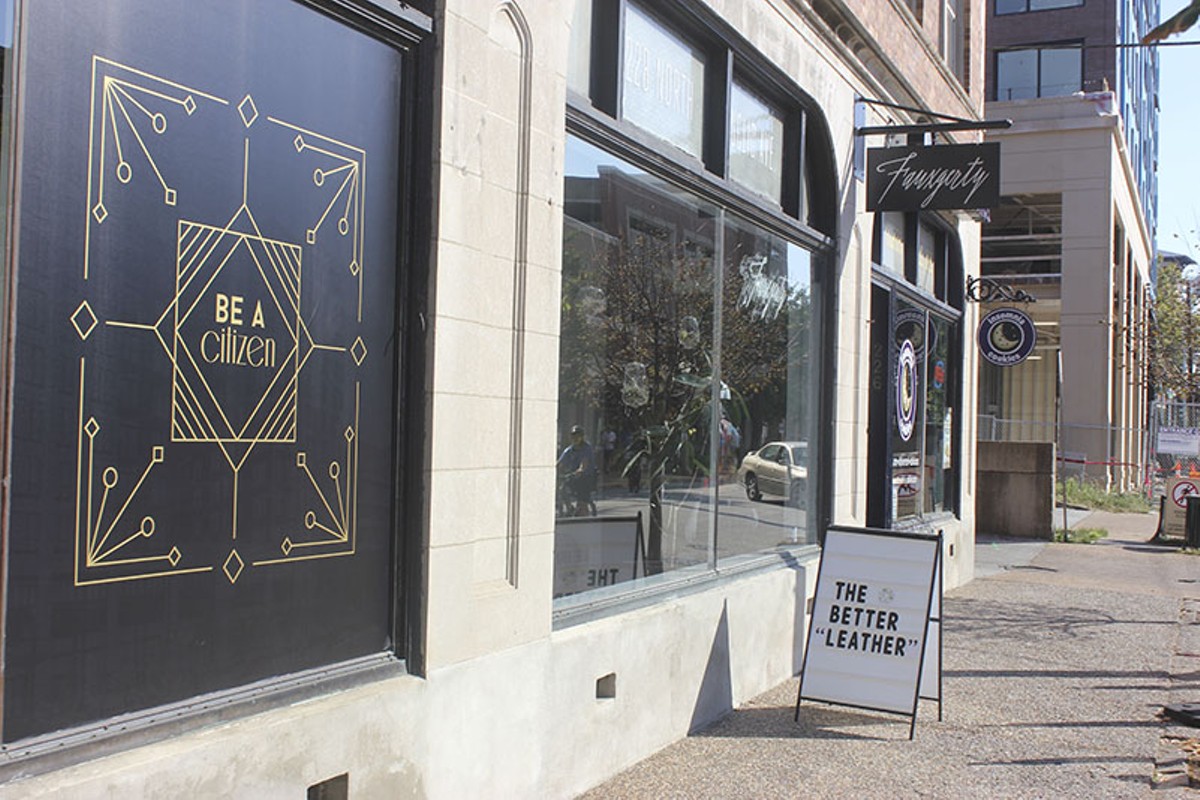
If you're one of those intrepid urban dwellers who calls the heart of the city your home, you've probably gotten used to the fact that your county friends come to your neighborhood for bars and restaurants, but you have to drive to theirs for even the most basic shopping. Need a birthday gift or a sweater? Until recently, you were going to Chesterfield, or at least the Loop. But recently we've seen signs of life in some of these neighborhoods, signs that some enterprising boutique owners understand we have money to spend, even if Target isn't interested in taking it. At Rafael Adon (1901 Park Avenue, 314-621-3784), you can buy handbags of the supplest leather — and some amazing candles and soap — in the heart of Lafayette Square. Both a kitchen store (Lemon Gem Kitchen Goods) and a mixology supply shop (Intoxicology) are headed to the Grove, while in the Central West End, Maryland Plaza mainstays AG Jeans and 10denza have been joined by some promising new shops. One-year-old Fauxgerty (228 N. Euclid) features "vegan leather," designed in St. Louis. Just down the block is East + West (387 N. Euclid, 314-553-9528), a men's boutique that recently picked up and moved into the city from Kirkwood. If current trends continue, maybe our suburban friends will soon be planning shopping trips in our neighborhoods in addition to bar crawls.
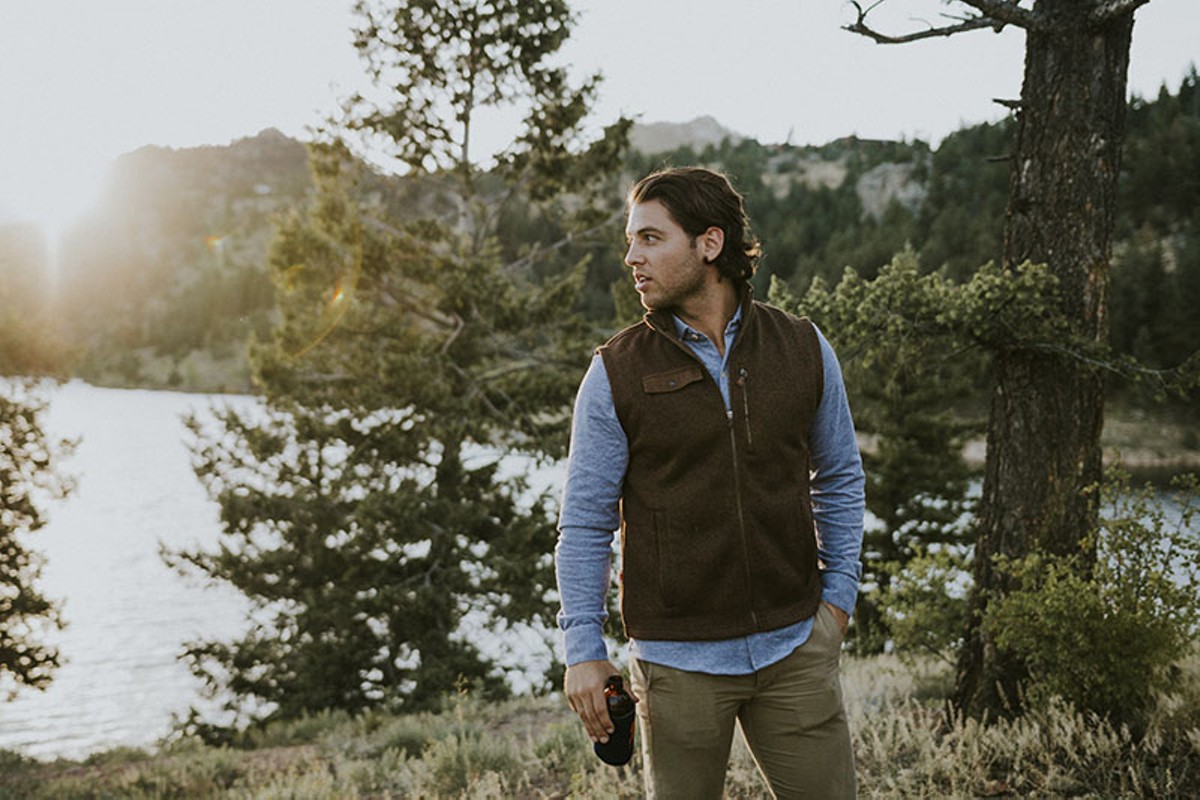
The Normal Brand, created by local businessman Jimmy Sansone, has been taking the country by storm since its creation in March 2015. Sansone was inspired by his in-the-middle lifestyle: his family lived in the city, but spent weekends enjoying the outdoors. He didn't need fancy duds, nor did he find the Nantucket-inspired preppy looks of J.Crew appealing. He just wanted clothing that was ... normal.
Frustrated by the lack of well-made, durable options catering to this lifestyle, Sansone set out to create a clothing line that redefines what it means to be normal, with henleys, flannels, long-sleeved T-shirts. The basics, but with good fabrics.
Roughly a year and a half later his business has taken off, to say the least. The Normal Brand (various retailers; thenormalbrand.com) raked in more than $500,000 in its first year. It's featured in stores from St. Louis to Atlanta to Dallas and now includes a successful college ambassador program. With men's and women's lines, accessories and even a few items for our canine counterparts, this clothing brand is showing that Midwestern fashion is just as versatile and desirable as our way of life.
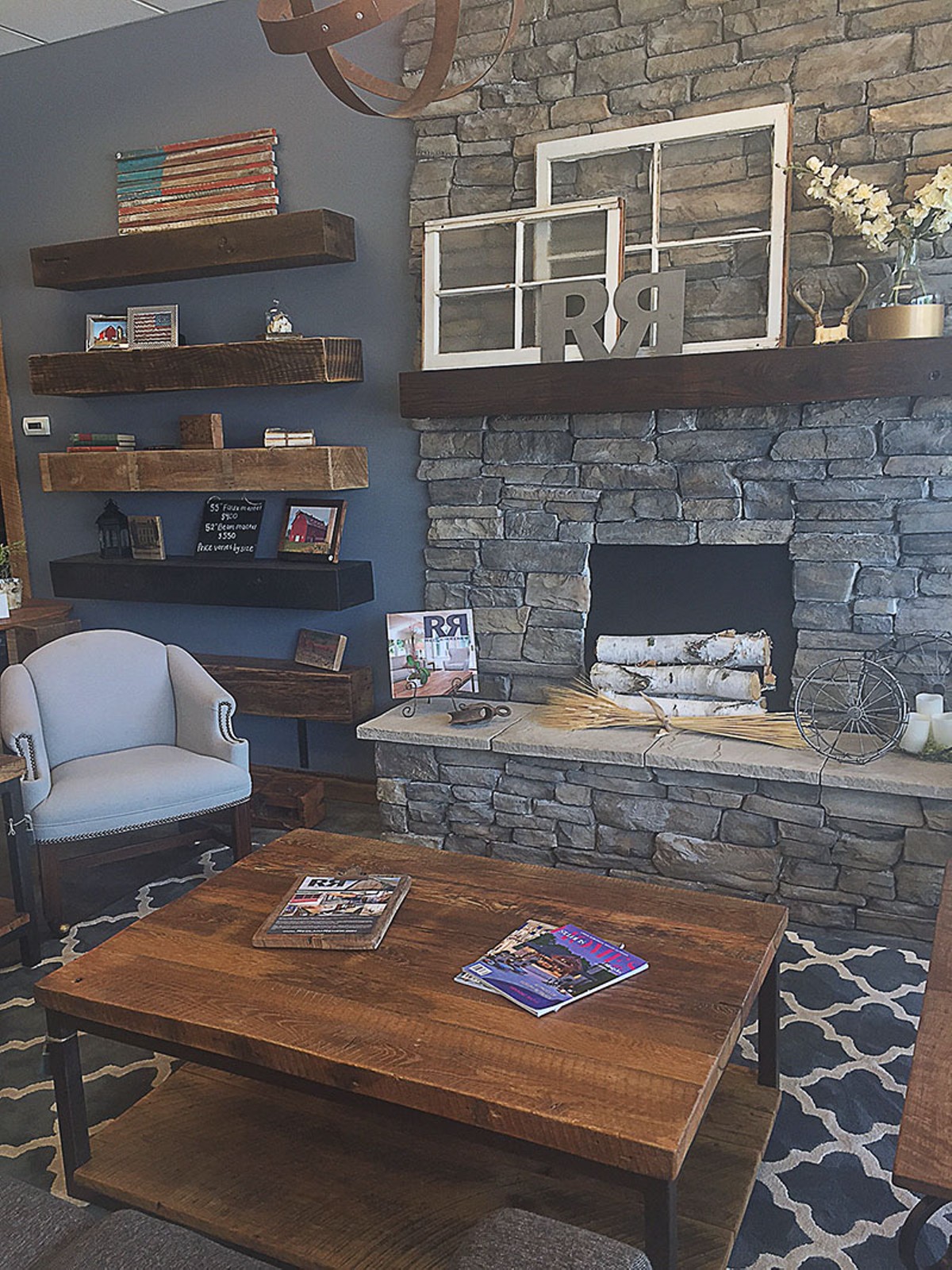
Just about every week, Barry Kraft gets a phone call from someone saying their barn is falling down.
But they're not calling to complain. They're calling to give him access to the materials. Kraft's business Reclaim Renew (2145 Barrett Station Road, Des Peres; 314-858-9100) combines his well-honed furniture-making skills with old wood from Midwestern barns to build strikingly beautiful furniture.
"We have calls from grandmothers who say that her and her husband have been with that barn in their life for the past 50, 60 years," Kraft explains. "It has become a part of their life and the fact that it's falling down just breaks their heart. So when they come in here and see what we're doing with it, it makes them feel really good."
Kraft and his team tear down four to five barns a month, and they can get somewhere between 3,000 to 10,000 board feet of lumber from each one. That's enough to make dozens of tables, benches, mantels and other items.
"Let's just say I have enough wood to last me years," Kraft says with a laugh.
Although Reclaim Renew's storefront and showroom only opened in Des Peres in early June, the company has already outgrown three work spaces in its five years of operation. Kraft's team of approximately twelve builds custom cabinets, sliding barn doors, mantels, coffee tables and virtually anything else made of wood. They partner with a local stoneworker, concrete company and a blacksmith.
"Our stuff isn't just 'farm,'" says Katie Bingham, a longtime friend of Kraft's who joined the business in 2011. "Just because it came from a barn doesn't mean it has to go back into a barn style. We've gone super high-end modern, but also very rustic. So we can really morph the wood into a lot of different looks to match those home styles. I think that's why Reclaim Renew has become so popular here in St. Louis, because people love that history behind things, but they want a more modern touch."
And it's not just a matter of creative reuse. It's also a superior grade of wood."
"That wood is first-growth lumber that is just not around anymore," Kraft says. "It's never coming back; we'll never have it again."
Adds Bingham, "The durability of these products is through the roof — how solid and how strong."
At the Des Peres store, customers can purchase furniture to fit their style, or meet with the pair to design custom pieces for their homes, offices or any other space. Reclaim Renew has provided custom items for many stores and restaurants around the area, including Lion's Choice, Circle 7 Ranch and Twisted Tree.
Another reason to feel good about shopping at Reclaim Renew? The business is giving back. On top of building custom furniture for profit, Kraft also works with St. Louis' Rise Together Ministries to train refugees and others in woodworking. Many of the smaller wooden items, such as drink holders, were crafted by program participants.
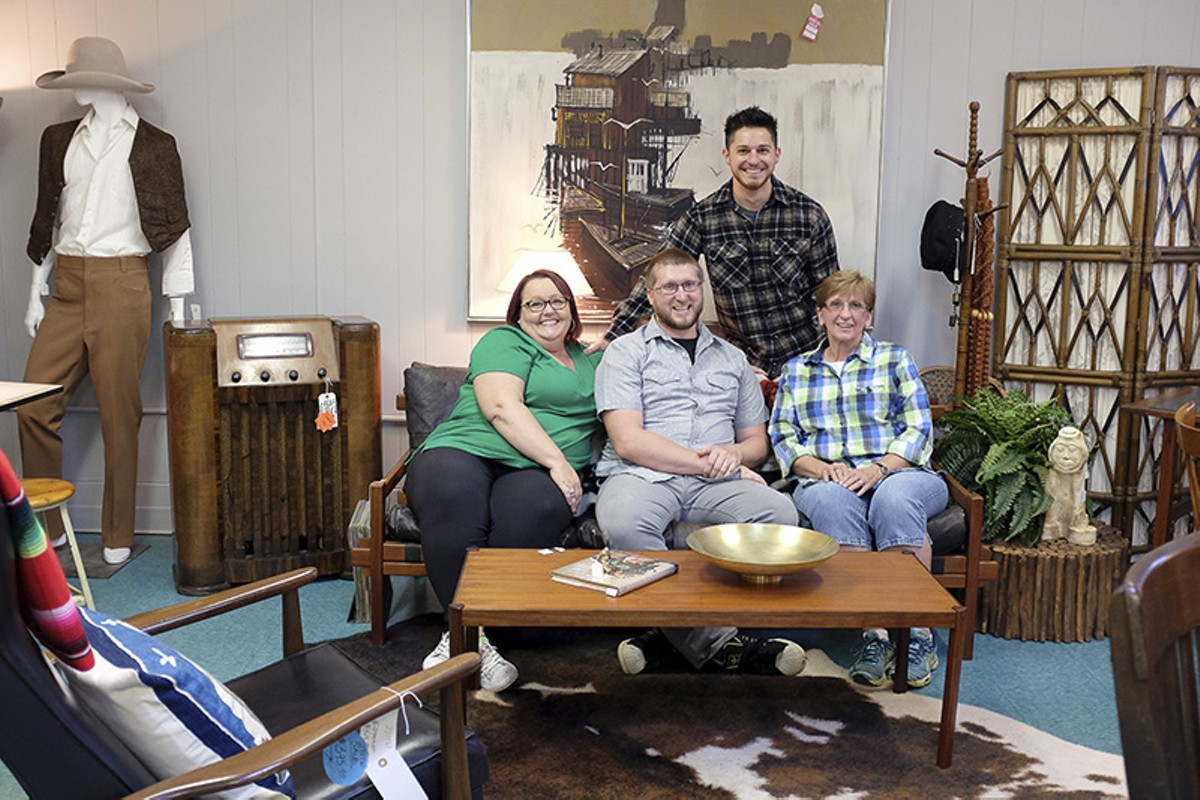
St. Louis may not have a Fifth Avenue's worth of high-end shops selling new items, but we simply can't be beat when it comes to repurposing. There are many places across the metro area to hunt for both vintage home goods and furniture or gently used treasures.
You probably want to start on Cherokee Street. The south city neighborhood's row of antique shops has long been a standby of vintage goodness, with gems such as Riverside Architectural Antiques (1947 Cherokee Street, 314-772-9177) and Ruth's Vintage (2001 Cherokee Street, 314-865-1091). The options are many; pick up a drink and treat from Whisk: A Sustainable Bakeshop (2201 Cherokee Street, 314-932-5166) to fuel your journey.
But while it's most concentrated, Cherokee is not the only shopping district for those looking for pre-used goods. Just south of Forest Park, Quintessential Antiques (5707 Manchester Avenue, 314-531-9701) has new treasures every month. The owners take a unique approach and are open from 7 a.m. to 7 p.m. the first seven days of the month, then spend the rest of the month traveling across the U.S. in search of vintage finds for their store. Nearby, the Green Shag Market (5733 Manchester Avenue, 314-646-8687) blends antique and modern in its large store, which contains booths from various vendors, each with their own taste and specialty. There you might find decorative letters cut from vintage books and welcome signs painted on reclaimed wood in addition to mid-century modern furniture and 1970s bellbottoms. The Green Goose Resale and Consignment (5611 Hampton Avenue, 314-352-5000) takes a similar approach; you'll almost definitely find good antiques there, along with a wide range of slightly more modern furniture, dishes and home décor. If your home improvement projects are more on the renovation level, ReFab (3130 Gravois Avenue, 314-357-1392) offers a warehouse of reclaimed wood, cabinets, doors and more (plus some furniture and décor, too).
Richmond Heights is home to two large antique stores on Big Bend, the appropriately named Treasure Aisles Antique Mall (2317 S. Big Bend Boulevard, Richmond Heights; 314-647-6875) and Big Bend Antique Gallery (2337 S. Big Bend Boulevard, Richmond Heights; 314-645-3130).
Until recently, it was also home to Miriam Switching Post (292 Hanley Industrial Court, Brentwood; 314-646-7737), which has since relocated to Brentwood. Miriam only sells items that have been donated, and sells them tax-free to raise funds for the Miriam School. Another place you can shop and simultaneously feel good about giving back to the community is Revive Thrift Shop (2202 S. Vandeventer, 314-776-7520), where you'll surely find some vintage goods but also fresher items, too. The goal of Revive's nonprofit parent company, Mission St. Louis, is to break the cycle of poverty.
All of these stores require some energy and a discerning eye — it's necessary to enjoy the hunt for the perfect old leather chair or vintage picture frames. More curated antique stores offer a smaller number of finds and require far less sorting; a great one is the White Rabbit (9030 Manchester Road, Brentwood; 314-963-9784), which describes an "ever-changing assortment of painted vintage furniture, fun Pinterest-inspired décor, and great items from local artists." However, the prices reflect the work of styling the store; you're less likely to find a bargain here.
For the mid-century modern enthusiast, T.F.A. (6514 Chippewa Street, 314-865-1552) and MoModerne (8631 Watson Road, Webster Groves; 314-495-4095) both have large selections of Mad Men-era pieces, but are on the pricier side; if you head further out of the city to north county's Red Door Resale (408 St. Anthony Lane, Florissant; 314-488-5154) you'll find mid-century pieces without a stuffy atmosphere, and you can stop by Pirrone's Pizzeria (1775 Washington Street, 314-839-3633) afterwards.
Sorting through piles of dusty discards from the past is part of the fun. But nothing is better than someone complimenting the perfect piece you bought for your home and you getting to say, "Oh, I just found this at an antique store." So much more satisfying than saying it's from Target.

Crate diggers are known to travel absurd distances, hunt down obscure contacts and forever keep their secrets as they pursue flat, black gold. In St. Louis, however, the vinyl is close and ever-ready for browsing, bartering and swapping. You could hit nearly a dozen record outlets by bicycle, assuming your tires are fat enough to carry the load.
The area's flagship shops, Vintage Vinyl (6610 Delmar Boulevard, University City; 314-721-4096) and Euclid Records (19 N. Gore Avenue, Webster Groves; 314-961-8978), have won national recognition, and their stock seems endless. The former is the go-to location for classic blues, soul and hip-hop (and lots more, to be sure); the latter pulls in the latest rock and Americana vinyl releases and reissues, while remaining a jazz-collector's paradise. Music Record Shop (4191 Manchester Avenue, 314-675-8675) in the Grove and Dead Wax (1959 Cherokee Street, 314-913-3692) in the Cherokee District are one-tenth the size, but they still offer a wealth of LPs, new and vintage, and some sweet bargain-bin finds. For the last year, Maplewood has been home to Planet Score (7421 Manchester Road, Maplewood; 314-282-0777), which has strong offerings in '60s-'80s rock and country. And don't even get us started on the Record Exchange (5320 Hampton Avenue, 314-832-2249) in St. Louis Hills. Owner Jean Haffner has spent a lifetime filling every corner of this former library with country, classic rock, '50s pop and rockabilly, jazz and miles of aisles of Elvis. The 45 room upstairs is not for the faint of heart or short on time.
The loss of Apop Records on Cherokee Street in 2014 was a heartbreaker for devotees of the experimental, noise and punk underground. Nothing has replaced it in St. Louis, but the city's newest record store, Endless Planets (2715 Cherokee Street, lower level 5b, 314-884-8045), located just a few blocks east of where Apop stood, caters to a different kind of music obsessive.
Owners Scott Trausch and Jeff Michael opened the bedroom-sized space in the basement of the Cherokee Place Business Incubator in April 2016. They specialize in rare and bewildering international and American dance music: out-of-print post-bop and jazz-fusion titles, African and Brazilian pop and funk, electronic and ambient wax, lots of private or import pressings — pretty much anything and everything that you simply won't find anywhere else in town.
"People know about African funk and what not, but the market changes depending on what people are listening to," Michael says. "Someone like Lazarus Kgagudi, who has electronic elements and the use of Linn drums, might not have been rare before, but now there's interest in these different world rhythms. With the electronic and sampling culture, people are looking for new sounds."
Both Trausch and Michael are DJs, with Trausch spinning regularly at Propaganda and also running a cassette-release label. Endless Planets features a small collection of local experimental and electronic music tapes, and a bin for local releases — if by local you mean impossible to find Gaslight Square jazz albums and Ike Turner Jr.'s electro-funk unicorn Hard Labor. Japanese jazz players paying homage to Miles Davis' electric period? Check. 12" house singles? Check and double check. And though the prices are prohibitive for the novice digger, and the total stock numbers just over a thousand records, the shop has plenty of reasonably priced soul and funk from artists like Herbie Hancock and Stevie Wonder to complete your collection.
"We know that most people can't spend $100 on a record they might not know," admits Michael. "But we want to create a space where people can come in and listen and discover something weird, something interesting, something new."

If you ask enough St. Louisans where they got their tattoos, eventually you might get the answer "Ragtime."
The shop is one of St. Louis' hidden gems: a specialty parlor that operates off the grid with no phone, no email, no advertising, by appointment and referral only. It's hard to find, but owner Matt Hodel likes to keep it that way: there's something about having to work for your tattoo — hunting down the perfect place, choosing the perfect artist, creating the perfect design — that reminds him of when he first began getting tattooed at sixteen or seventeen, decades ago.
"There is a place for people who just want to get that one memento," Hodel says — and that's not Ragtime Tattoo. He likes to tell his clients, "When you're ready to go from having tattoos to being tattooed, then we need to sit down and figure out the direction you wanna go." He works in bright colors and bold lines, in a particularly St. Louis style popularized in part by the old-guard tattoo artist Mitch Mitchell when he worked at Trader Bob's Tattoo Shop.
Ragtime Tattoo's current iteration came about thanks to Hodel's conviction that he couldn't focus on creating large, complicated tattoos at a normal shop. On a trip to Austria, he saw a friend's parlor; it worked by appointment only, booking weeks in advance, and allowed for a kind of in-depth work that just isn't possible when your day is full of walk-ins. Since Hodel ambiguously inherited Ragtime around 2012, it's grown (to his mind, somewhat unexpectedly), gaining artists, workspaces and clientele.
Because it's a specialty shop, prices typically run higher than many other St. Louis parlors. Ragtime starts at $100 for its consultation fee. After that, patrons work with an artist to plan and budget for a long-term project.
For the uninitiated who don't want to commit dozens of hours (or an entire limb) to the chair, Ragtime's not the only shop doing great work in the St. Louis area. Hodel calls the city "a mecca of tattooing," with a number of excellent shops that each have several top artists.
The ever-popular Enigma Tattoos & Body Piercing (6635 Delmar Boulevard, University City; 314-863-8288) and Iron Age Studios (6309 Delmar Boulevard, University City; 314-725-1499), fixtures on the Loop, do smaller tattoos in addition to big custom projects. (That said, a few of the more established folks at Iron Age — including Brad Fink, a well-regarded St. Louis artist — work by appointment only.)
If you're looking for something a little more off the beaten path but aren't feeling Ragtime, Art Monster Tattoo Shop (2627 Cherokee Street, 314-258-1775), TRX Tattoo & Piercing (3207 S. Grand Boulevard, 314-664-4011), Trader Bob's Tattoo Shop (2529 S. Jefferson Avenue, 314-776-2307), Tower Classic Tattooing (4146 Manchester Avenue, 314-875-9995) and Thunderdome Tattoo (1558 S. Broadway, 314-241-1441) all have excellent reputations and numerous artists.
That's just a sampling of some of the well-regarded shops in the city. Don't forget to keep an eye out as well for visiting artists from around the globe.
Because We Invented the Anti-Trump Trump-Scented Candle: One of 75 reasons we love St. Louis in 2016

When Kate Dobson first dreamed up the idea of a candle that smelled like Vladimir Putin — with notes of pine, earth and "smoke billowing from the cities of your enemies" — she knew nothing about candle-making. Formerly an editor at the Washington Post, she'd moved with husband JD to his native St. Louis in 2009 and was busy raising their two kids while he worked in marketing and PR.
But the idea was too funny not to indulge — and six months of experimentation later, damned if Dobson hadn't figured out how to manufacture one hell of a candle. Naturally, an anti-Trump Trump-scented candle was quick to follow, complete with a shock of orange-ish faux-fur on top. Today you can buy both at Phoenix Rising (6331 Delmar Boulevard, University City; 314-862-0609).
And that's the thing about St. Louis — when you're not racing your way past the other rats, you actually have time to follow your dreams. Even if your dreams smell of suntan oil and steak, with notes of bullshit.
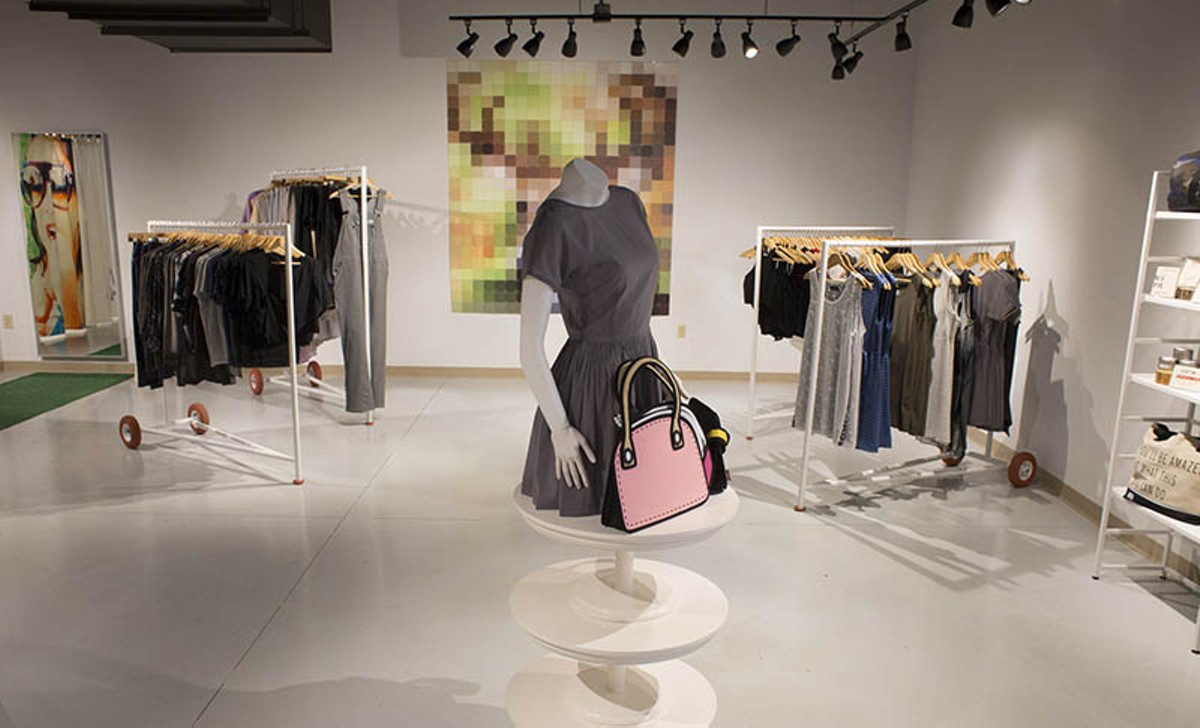
After Good Works Furniture store pulled out of the Loop in the fall of 2014, its landlord, which happened to be the city of University City, began working to fill the sizable footprint the shop had occupied for more than two decades. Its efforts paid off; Three Dog Bakery brought its second Missouri location to a portion of the space in April, tempting the area's best-heeled pooches with organic dog treats and self-serve washing stations.
But it's the shop that opened a few months later in the remaining 1,200 or so square feet that has brought something truly unique to Delmar. OSO: a style lab (6321 Delmar Boulevard, University City; 314-467-0436) isn't just a clothing boutique and isn't only a gift shop. It's a little of both, with everything from $200 cocktail dresses to whimsical knit underwear to bourbon-scented toothpicks, all on display in the same spare, stylish space.
The shop is the brainchild of Jen Rieger and Chris Rubin de la Borballa, U. City residents who also own the digital marketing agency 963 Collective. They previously took over the Webster Groves boutique Clover, but this is their first attempt at designing a retail shop from the ground up.
The result is a smart, ever-changing collection that's unapologetically their own, a mix of high and low that combines Asian minimalism with West Coast color and pop playfulness. The shop would be at home on LA's Abbot-Kinney Boulevard but utterly lost at Plaza Frontenac.
And so you can buy Mavis toothpaste here or rosewood cedar pencils. The jewelry is mostly locally made, as is the eyewear. There are pins by Michelle Volansky, T-shirts by Human. Apparel, dresses by Trang Nguyen, and cards from Sopearb Touch, whose work they spotted at the U. City Farmers Market and now can't keep in stock.
It's not just the witty, irreverent cards that are flying out of the store. Before OSO even opened, de la Borballa placed a set of G.I. Joes in yoga poses in the window. "People kept knocking, asking how much they were selling for," he says. "They really wanted to buy them."
"We thought, 'Maybe we should order some of these,'" Rieger recalls. Now they're a regular item — and they sell like hotcakes.
That willingness to listen to their customers has served OSO well. The pair's "agile and determined mindset" means buying small and seeing what sticks. "We let the customers determine what the store will be," de la Borballa explains.
The common denominator, though, is the co-owners' vision — and their own impeccable taste. The selection may be idiosyncratic, but everything is exceptionally well-designed and somehow makes sense on the sales floor. You simply can't go wrong with anything they're selling.
That's true even for what they're not selling.
"We've sold stuff hanging on the walls," de la Borballa says — things like display shelves and what had been intended as shop decorations.
"People try to buy our clock all the time," Rieger adds. "People just like our stuff."
While they don't push the local brands they're stocking in the earnest manner that suggests you should buy something because it's good for you, they make a point of sharing the stories behind each item to anyone interested in a conversation. It's partly their marketing background and partly that they just can't help themselves.
"Most things have a narrative behind them, and our customers care about those stories or they wouldn't be shopping here," de la Borballa says. "They'd rather buy a card we found in a farmers market than a mass-produced one. And for any piece in the store, we can tell you a story like that."

